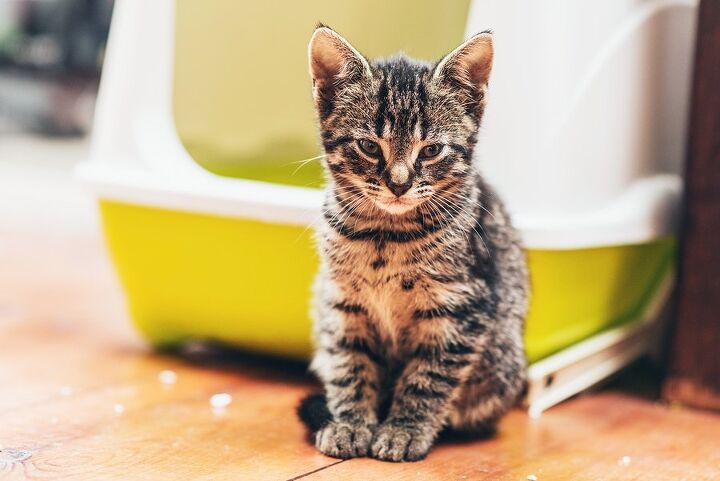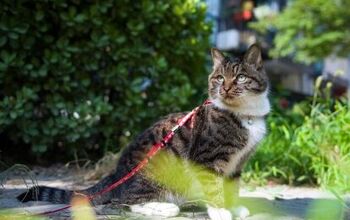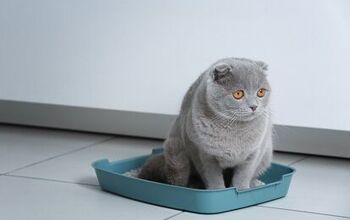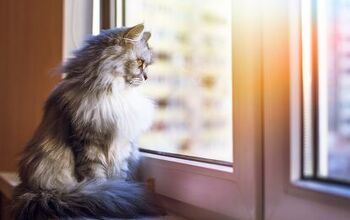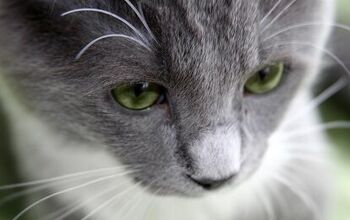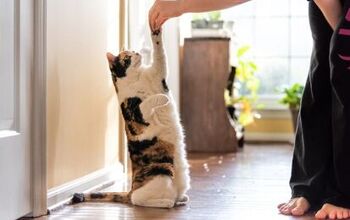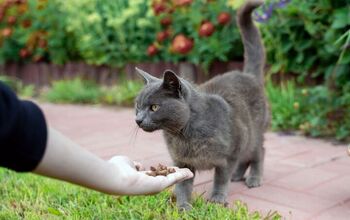Why is My Cat Peeing Outside the Litter Box?

Cats will naturally take to using the litter box, but, according to the ASPCA, at least 10 percent of felines will develop problems when it comes to using the litter box. While this issue can become a nuisance in the long run, it still isn’t too much of a big deal if you act on time- the solution is usually just around the corner. However, before you find the ideal fix, you need to pinpoint the reasons behind the occurrence.
So why is your cat peeing outside the litter box? Once you’re able to find the problem, you can work with your kitty to resolve the issue. Just remember that punishing your cat won’t result in her using the box; instead, try to understand why she’s doing what she’s doing, and then take steps to fix the problem. The issue at hand is always something that can be solved without resorting to punishment.
Related: The Most Common Litter Box Mistakes You’re Making
The Way You Maintain the Litter Box
If a cat isn’t happy with her litter box and doesn’t feel comfortable using it, she may end up avoiding it, so it’s important that you maintain a clean litter box at all times. The area where you place it, as well as the general hygiene in and around it are also important. Not at all surprisingly, cats can be a bit picky and peculiar when it comes to hygiene. That is why you need to follow these crucial steps in order to provide a pristine kitty bathroom.
- Make the litter box easy to access in a private location that your cat will feel comfortable with. It might be crucial to observe your cat’s patterns at an early age and find out which area in the house it’s most comfortable with. Usually, this is the bathroom, but it’s never certain. Also, avoid putting the litter box close to their food or in a place in which they love to lounge. It can be a turn off for them.
- Clean the litter box often, whether that means once a day, several times a day, or every other day. This will depend upon how often your cat uses the box and how dirty it becomes, as well as how many cats share the same box. Remember, cats have a much keener sense of smell than humans do, so even if a litter box seems fine to you, the cat may not feel comfortable going into a box that smells really dirty to her. Of course, no kitty is identical – some might turn out to be real squeamish and picky when bathroom duty is considered. This means that they might avoid the litter after just a single use. And that means scooping after every use and offering a clean surface for the next time. Sure, it might yield some extra work or litter expenses, but it can be the best solution for all the litter avoiding issues.
- In addition to scooping the litter clean, you should regularly throw out all of the litter in the box when it becomes too dirty and replace it with new litter. If you use a litter box liner, you can just throw it away, replace it with a clean liner, and fill up the box again. If you’re not using a liner, it’s a good idea to regularly wash out the inside of the litter box with soap and water. Similarly, if you have been using some scented cleaning agents for litter box leaning, try stopping for a while, and observe the results – your pet might be bothered by the fragrance.
- If you have more than one cat, you should have more than one litter box. Some experts recommend one litter box per cat, along with an extra one for good measure, but see what works for you and your feline family, as well as how much space you have for litter boxes. Kitties are notoriously willful and can be territorial at times. Using a litter that another cat already soiled might be a big “no no” for them.
- Make sure the litter box you use is large enough for your cat, and bear in mind that a hood or a liner may make it uncomfortable for your kitty to use the box, so try to hone in on her preferences, if possible. A more open design, without any boxy constraints ensures ease of access and quick use. Perhaps that is just what your cat was looking for.
- The amount of litter in the box is also important, as some cats will prefer about one or two inches of litter and may not like a very deep box. Again, this may depend on your cat, so observe her behavior to note preferences. For example, do you find your cat peeing outside the litter box when the litter gets too low, too dirty, or when it’s too deep?
Related: 5 Fresh And Effective Ways To Control Litter Box Odor
The Type of Litter You’re Using
In addition to keeping your litter box clean and in an easy-to-access area of your home, keep in mind that the type of litter you use may influence whether or not your cat eliminates outside of the box.
Some cats, for example, may prefer only clumping clay litter while avoiding the use of pellets, but other cats may be the opposite. Also, if you happen to change an established pattern, your cat might not like it. For example, if you have been using a certain type of clumping clay litter for two years and then you suddenly shift to pellet type, your cat might not find that acceptable. Try to stick to the usual fare.
If the problem of your cat peeing outside the litter box still isn’t resolved, you may want to try changing the type of litter you’re using if the litter is already kept as clean as possible. Contrary to the situation above, sometimes a change is exactly what is needed. After all, a lot of issues can be resolved with a “trial & error” approach.
Medical Problems
A variety of medical conditions can contribute to your cat peeing outside the litter box. An older cat or one who has physical ailments may not be able to climb into a box with high sides, for example. But other more serious conditions can also be the cause of your cat’s poor litter box habits.
If your cat isn’t using the litter box, have her examined by a veterinarian. Your kitty may be suffering with a urinary tract infection, feline interstitial cystitis, and kidney stones or blockages. Watch for straining, crying in pain, and other indications that a medical condition may be the cause. If these symptoms are present, have your cat checked by a vet right away, as urinary blockages can be fatal. Rarely, a senior kitty might develop a health issue called incontinence. Just as in humans, this issue can appear in cats as well. This is an issue with the urinary tract and results in involuntary peeing. This occurs usually in senior felines or those that suffered a spinal injury. But, with patience and ample care, this issue can be managed.
When in Doubt, Talk to Your Vet
This isn’t meant to be a complete list of every possible reason why your kitty isn’t using the litter box. Other factors can include stress, a negative association with the litter box, and more. When in doubt, discuss the problem with your vet, who knows your kitty best and can steer you in the right direction. As with anything, it helps to observe your cat and its behavior, and to take a rational and caring approach to fixing any issue that appears. Sometimes, the reasons why your cat is avoiding the litter are simple, but sometimes they can have bigger underlying problems.

Lisa Selvaggio is a freelance writer and editor, and our resident cats-pert, with certifications in pet nutrition and pet first aid. She enjoys producing content that helps people understand animals better so they can give their pets a safe and happy home.
More by Lisa Selvaggio



